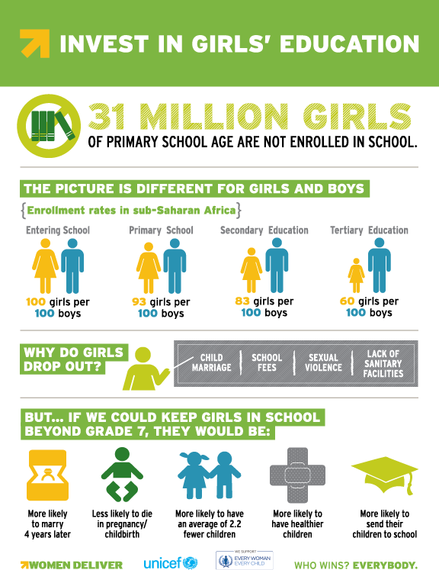One month ago, terrorists took more than 200 Nigerian schoolgirls from their families. Since then, the global community has rallied together to call on our governments to bring them home. This outpouring of support for the girls and their families is truly remarkable. Every tweet, every blog post and every protest is keeping this issue at the top of the global agenda, and we cannot stop until these girls are safely home.
For far too long, girls have faced extraordinary barriers to education, from the Taliban's assault on Malala Yousafzai to cultural traditions that force girls into marriages instead of into classrooms. Despite this, girls in Nigeria and around the world continue to exercise their right to learn. If there is anything we can take away from this tragedy, it is the bravery, strength and determination that each of and every one of these girls has exhibited in pursuit of her education.
But going to school shouldn't have to be an act of bravery. Girls -- and boys -- should be able to attend schools free from discrimination, intimidation or threats to their safety. As Pakistani advocate Malala Yousafzai said, "Schools are not supposed to be places of violence. They are supposed to be havens of protection for children. Where children go to learn, to dream of a better future."
It can be frustrating to watch these situations continue. But we cannot underestimate our influence or our ingenuity. In fact, it's often when we are faced with the toughest challenges -- with the strength of the global community behind us -- that we can have our greatest impact. In these moments, we must not cower; we must act. And right now, we can show our solidarity by continuing our investments in girls' education and rights.
Extremist groups view girls' education as a threat. But we know it's a solution. When girls are educated, they are better equipped to contribute to their communities and build a better future for themselves and their families. Globally, if we could keep girls in school beyond grade seven, they would be more likely to marry later, less likely to die needlessly in pregnancy and childbirth, and more likely to have healthier children. The Nigerian students and their families knew this, too -- that's why they returned to take an exam, even after threats led to the closure of 85 secondary schools in the region.
They showed their strength. Now, it's time for us to show ours. We can -- and will -- show the world that our voices will not falter and our investments in girls will never fade.
